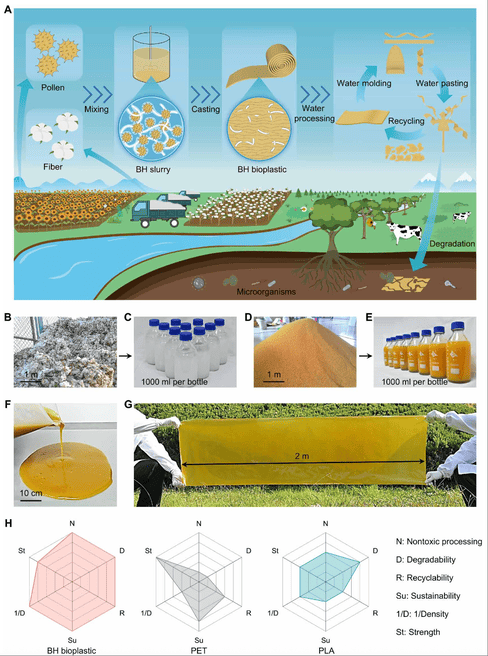Our collaborative research has been published in Science Advances
In collaboration with Ze Zhao's group at Wuhan University, we have developed a new approach to bioplastic production that avoids the traditional, resource-intensive processes of extracting monomers or biopolymers from biomass. The study, titled “Coassembly of hybrid microscale biomatter for robust, water-processable, and sustainable bioplastics”, has been published in Science Advances.
The team’s strategy combines waste cotton fibers and pollen particles, harnessing their natural microstructures to form a castable slurry with minimal preprocessing. This slurry self-organizes into a dense, fiber-laminate bioplastic with impressive mechanical strength—52.22 MPa tensile strength and 2.24 GPa modulus—achieved without the need for harmful solvents or complex equipment.
What sets this bioplastic apart is its ability to be reprocessed using water. Through hydration-induced disassembly and reassembly, it can be molded into intricate shapes, making it suitable for advanced, dynamic applications. It also offers closed-loop recyclability and biodegradability, positioning it as a strong alternative to conventional plastics.
This innovative method marks a significant step forward in green materials science, offering a scalable and eco-friendly solution for bioplastic production that aligns with circular economy goals.
https://www.science.org/doi/10.1126/sciadv.adr1596
